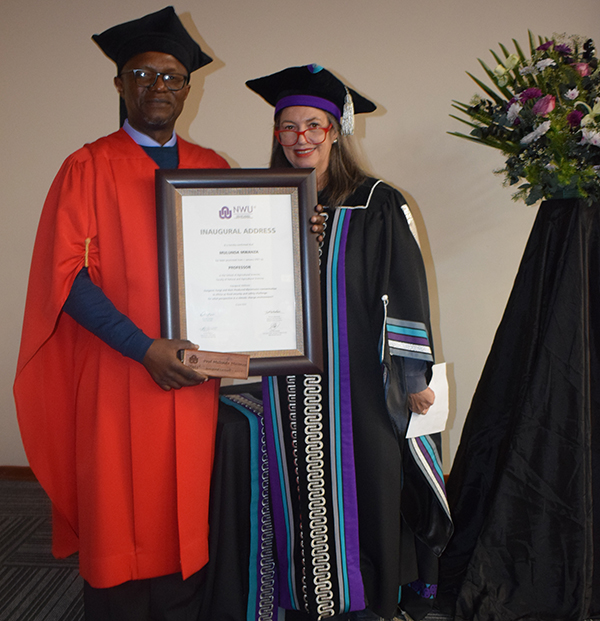Africa is facing a challenge in ensuring food security due to contamination of agricultural products by toxic fungi and their byproducts, mycotoxins, amid climate change.
This is according to Prof Mulunda Mwanza, who delivered his inaugural lecture at the North-West University (NWU) on 6 June 2024.
"Mycotoxins are toxic compounds produced by fungi such as Aspergillus, Fusarium, and Penicillium, which infect staple crops including maize, peanuts, wheat, rice and various tree nuts,” he explained.
"Mycotoxins can infiltrate the food supply at both pre- and post-harvest stages under varying environmental conditions, leading to health risks upon consumption. These risks range from gastrointestinal disturbances to organ damage and even carcinogenic effects.”
Prof Mwanza highlighted that the prevalence of mycotoxin contamination is influenced by Africa's climatic conditions, agronomic practices, socio-economic factors, and political landscape.
"Exposure to mycotoxins predominantly occurs through direct ingestion of contaminated crops or animal products such as milk and eggs from livestock fed on infected feed," he explained, adding that inhalation and skin absorption are potential exposure routes.
"The socio-economic status of many African communities often forces them to consume contaminated food, increasing their vulnerability to the effects of mycotoxins."
He added that climatic variables, particularly temperature and humidity fluctuations, play a role in the proliferation of fungi and the subsequent production of mycotoxins. As climate change intensifies these variables, the risk of contamination grows, posing a threat to food safety and public health.
Prof Mwanza's research, spanning over a decade, covers various aspects of mycotoxin contamination, including analytical methods, health impacts, and the influence of environmental factors on fungal behaviour. Significant data has been gathered from a range of agricultural products, providing a foundation for regulatory bodies.
The findings emphasise the need for Africa to develop and enforce its regulations tailored to the continent's environmental and socio-economic realities, rather than relying on standards set by American, European or Asian countries.
"Challenges such as sampling difficulties, matrix variability and the biochemical complexities of mycotoxins necessitate region-specific strategies," he noted.
Given the economic and health implications, Prof Mwanza stressed that: "African nations must prioritise the establishment of comprehensive mycotoxin regulations and control measures. Addressing these issues is important for safeguarding public health and sustaining the continent's agricultural productivity and food security in the long term.”

Prof Sonia Swanepoel, deputy vice-chancellor for community engagement and Mahikeng Campus operations, congratulates Prof Mulunda Mwanza after his inaugural address.
